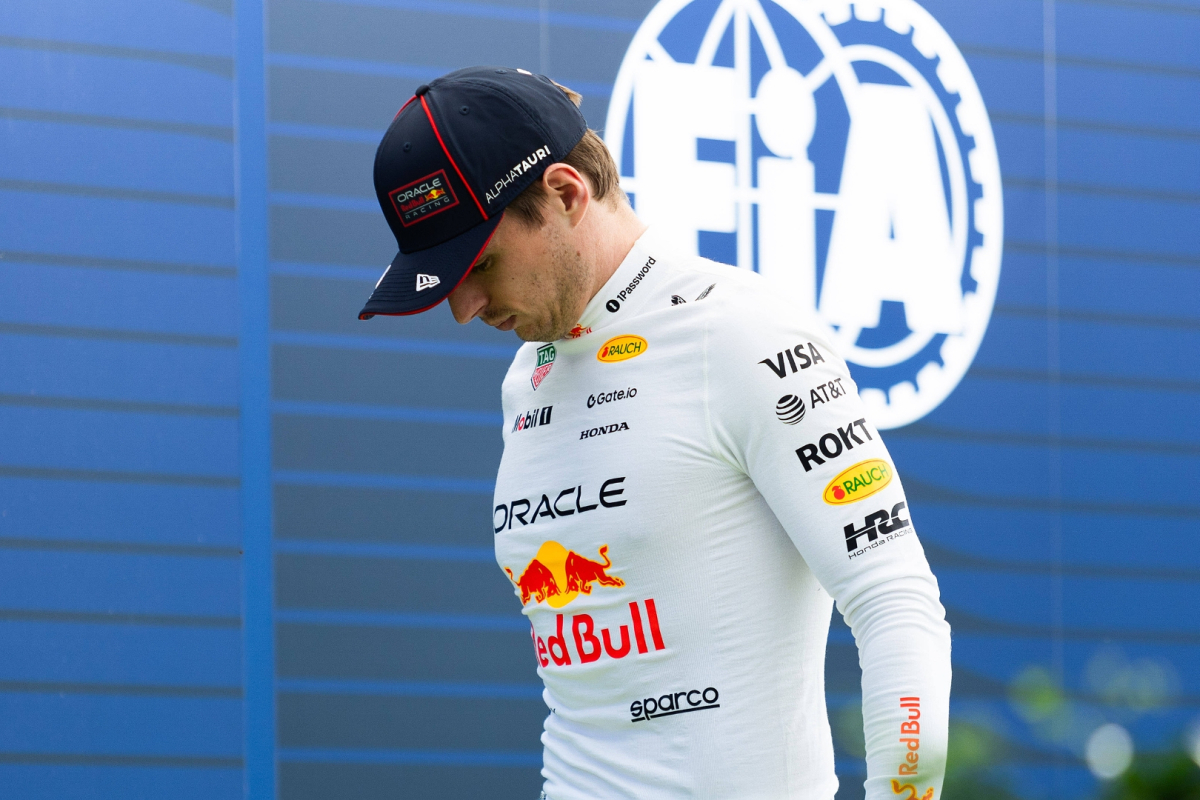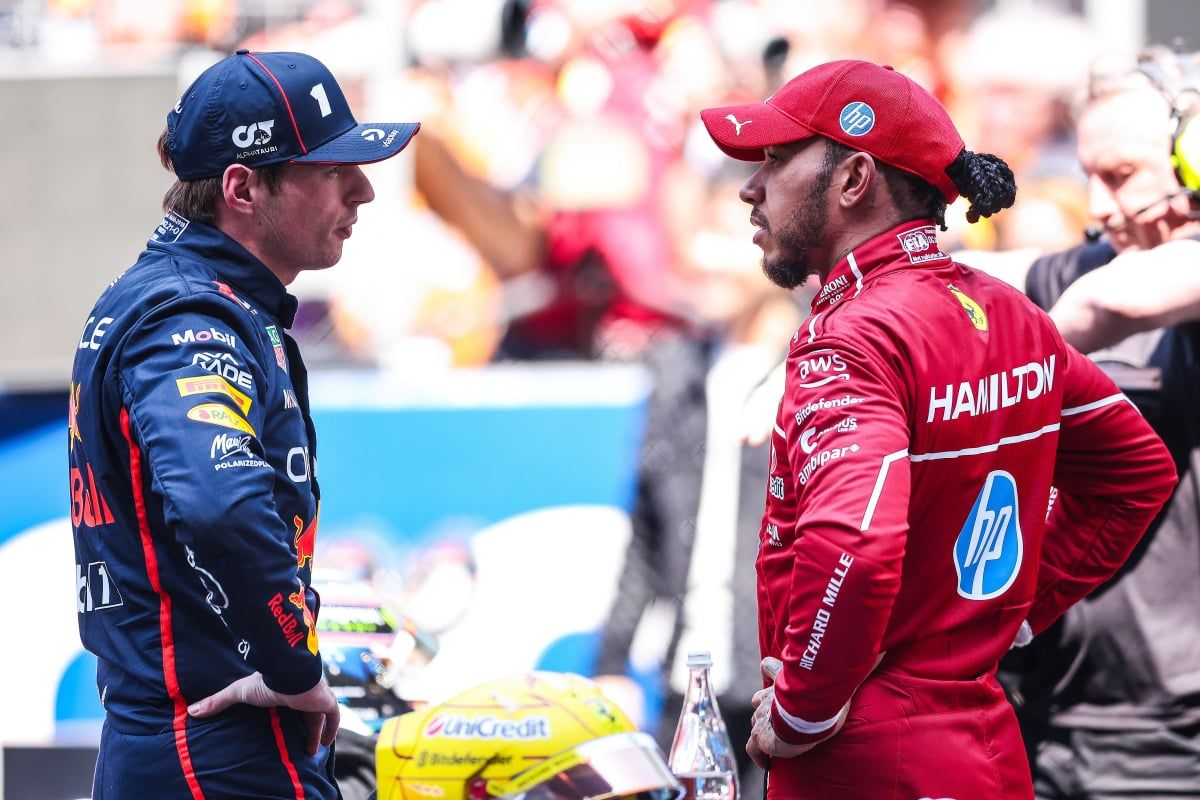Shockwaves in Formula 1: Max Verstappen’s Furious Canadian GP Outburst Sparks FIA Pu… read more
Max Verstappen could be at another run-in with the FIA following an emotional outburst during the post-qualifying press conference at the Canadian Grand Prix. The Red Bull driver, who is already dangerously close to a race ban due to accumulated penalty points, reacted sharply to media questions about his disciplinary record—potentially breaching the FIA’s code of conduct regarding language used in official settings.
Verstappen is set to start second on the grid on Sunday, sharing the front row with George Russell. Their pairing reignited interest in their recent on-track clash two weeks prior, which added to Verstappen’s growing tally of penalty points. He now stands just one point away from a race suspension—a topic that dominated the post-session media conversation.
Clearly frustrated by the repeated questioning, Verstappen lashed out, saying, “It’s really pissing me off. You speaking about it, on Thursday… it’s such a waste of time. It’s very childish.” While the language he used is far from the most explicit, it may still be enough to trigger a fine under the FIA’s current swearing guidelines, especially since the incident took place in what the FIA defines as a “controlled environment.”
The FIA has revised its swearing policy in recent years in response to complaints from drivers across various motorsport series. The updated regulations distinguish between “controlled” environments like press conferences—where language is expected to be more formal—and “uncontrolled” ones such as race radio or in-the-moment interviews, where some leeway is granted due to the heat of the moment.
What remains ambiguous, however, is how strictly the FIA interprets the severity of certain phrases. According to UK broadcasting regulator Ofcom’s language guidelines, words like “pissed off” fall under the “mild” category—unlikely to offend in most circumstances and usually requiring minimal context. Comparatively, other mild terms like “bloody stupid” or playful insults like “bawbag” have generally been treated leniently, especially when uttered spontaneously.
If the FIA leans on such broadcasting standards, Verstappen’s comment may not lead to formal punishment. At most, he might receive a warning, and even a fine—estimated around €5,000—would be relatively minor in the grand scheme. However, Verstappen’s disciplinary history complicates matters. Given that he is already one point away from a suspension, any new violation, even minor, could draw closer scrutiny from the stewards.
The tension between Verstappen and the media over his driving penalties is emblematic of his increasing frustration with scrutiny off the track. His remarks underline the pressure he is under and highlight the ongoing debate about freedom of expression in the sport, especially for high-profile drivers operating under constant public and regulatory observation.
Ultimately, whether Verstappen is penalized for his language will come down to how the FIA chooses to interpret its own standards. With little clarity on where the threshold lies for offensive language in press conferences, the decision could set a precedent for how similar incidents are judged in the future.




